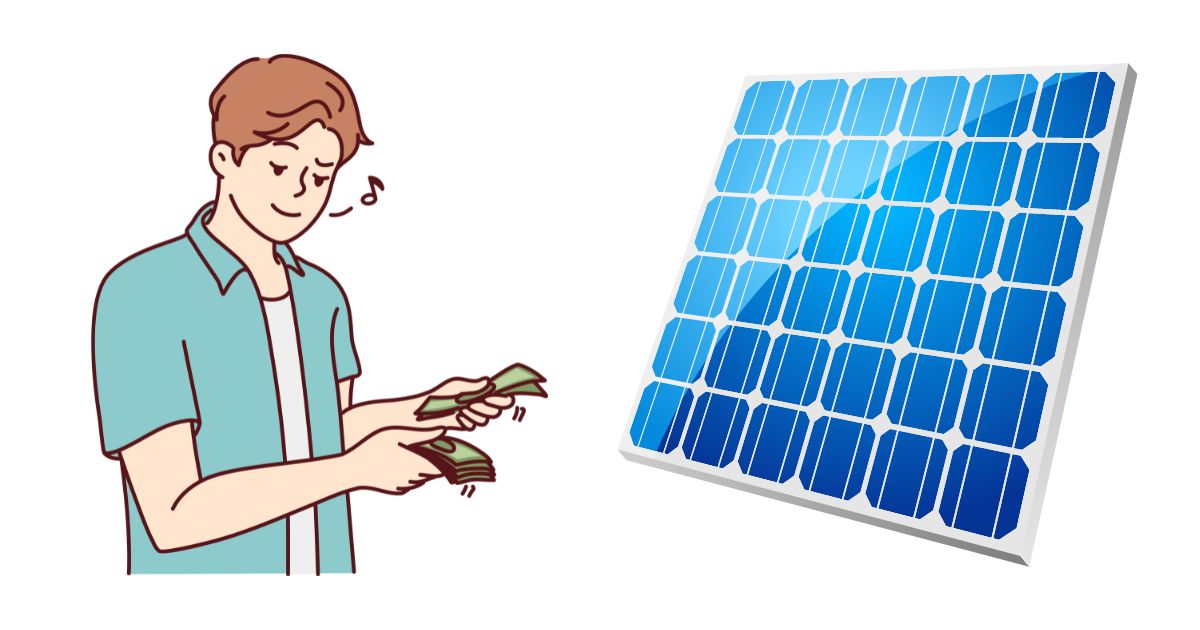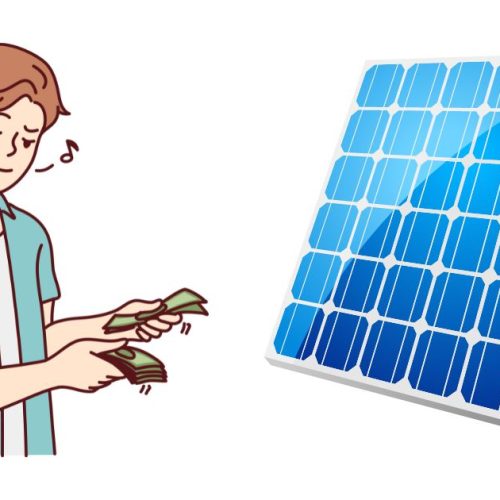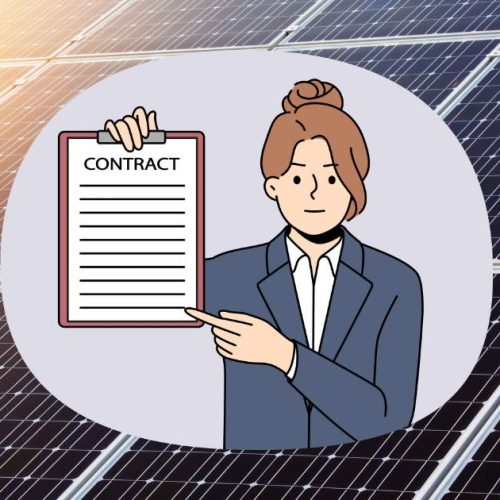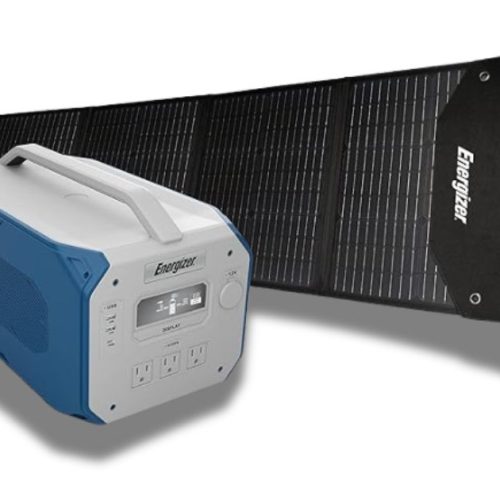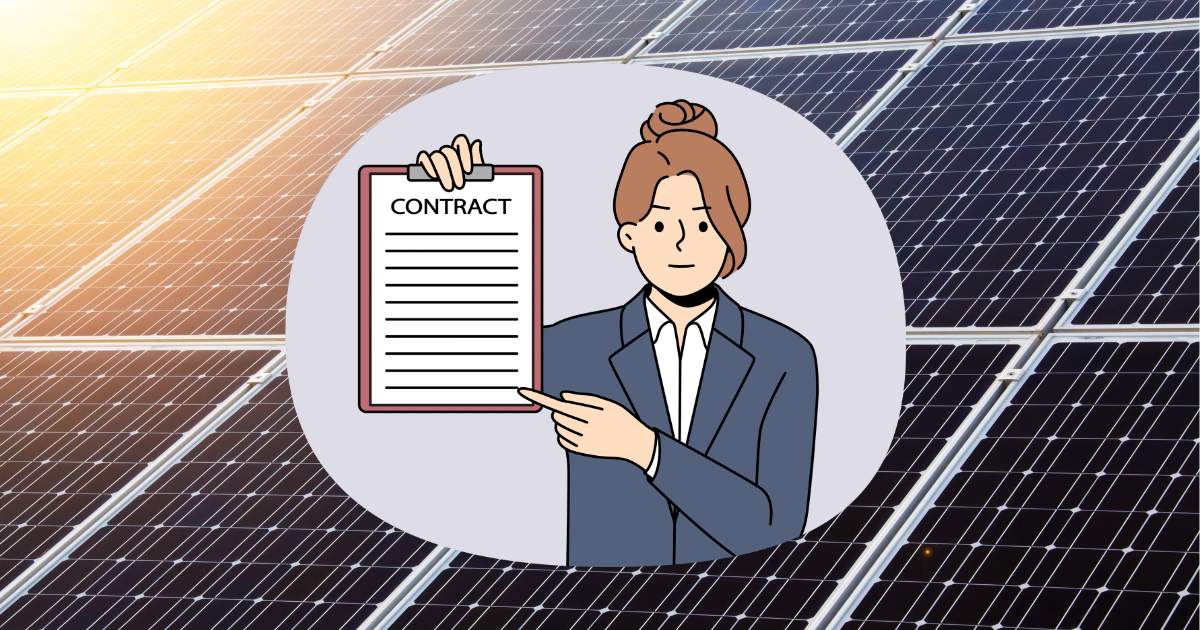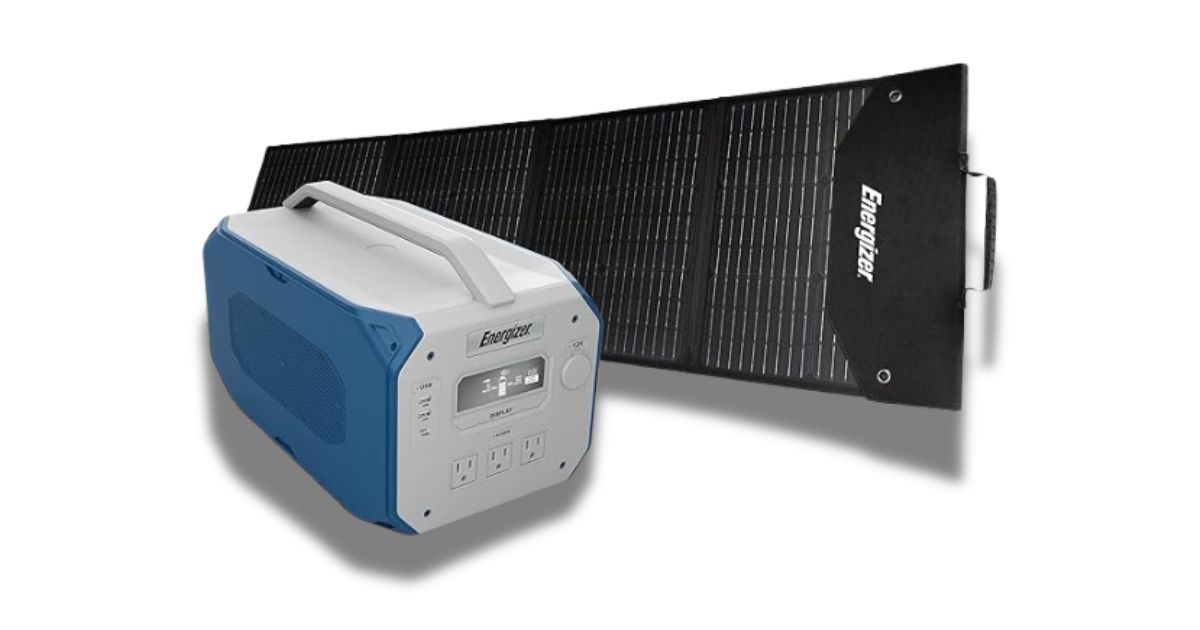Most homeowner’s insurance policies cover solar panels, including those from Geico, Nationwide, Progressive, and Allstate. Solar panel insurance coverage is usually included in standard homeowners insurance policies, eliminating the need for separate coverage.
Reviewing your specific policy to ensure adequate protection for your solar energy system is essential. As solar panels continue to grow in popularity, many homeowners are exploring the option of installing solar energy systems. With technological advances and increased environmental awareness, solar panels have become a desirable addition to many homes.
However, in the excitement of going solar, it is crucial to consider insurance coverage for this valuable investment. Understanding which insurance companies cover solar panels can provide peace of mind and protect homeowners from potential financial losses. Let’s explore insurance coverage for solar panels and how different insurance companies address this emerging aspect of home protection.

Benefits Of Solar Panels
Solar panels have become an increasingly popular choice for homeowners who want to reduce energy costs and positively impact the environment. Apart from these benefits, many are also curious about whether insurance companies cover solar panels Let’s dive into the details to understand the coverage and benefits of solar panels.
Lower Energy Costs
Installing solar panels can significantly reduce energy costs by using the sun’s energy to generate electricity. These renewable energy sources reduce reliance on traditional utility providers, leading to substantial savings over time. Benefits of solar panels to reduce energy consumption include:
- Reduced monthly electricity bills
- Potential to generate additional energy for credit or resale
- Long-term financial investment with favorable returns
Positive Environmental Impact
In addition to the financial savings, the positive environmental impact of solar panels is considerable. By using clean, renewable energy, homeowners can contribute to a healthier planet and a sustainable future. Environmental benefits of solar panels include:
- Significant reduction in carbon emissions
- Reducing dependence on non-renewable energy sources
- Contribute to combating climate change
Types Of Solar Panel Insurance Coverage
When investing in solar panels, it is important to consider the insurance coverage that comes with it. Understanding the types of insurance coverage available for solar panels can give homeowners peace of mind that their investment is protected. Let’s take a closer look at the different types of insurance coverage for solar panels.
Property Damage
Property damage coverage is essential for solar panels to protect the physical system from various risks. This usually includes coverage for damage caused by natural disasters such as storms, hail, or fire. Additionally, property damage insurance may also cover theft or vandalism of solar panels. Homeowners should carefully review their policies to ensure their solar panels are adequately protected under property damage coverage.
- Property damage coverage protects solar panels from natural disasters
- It also includes coverage for theft or vandalism
- Homeowners should review their policies to ensure adequate coverage
Liability Coverage
Liability coverage is another important aspect of solar panel insurance. This type of coverage protects homeowners if someone is injured on their property as a result of the solar panels. It also provides coverage for any damage the solar panels cause to neighboring properties. Liability coverage is crucial to protecting homeowners from potential legal and financial liability related to their solar panels.
- Liability coverage protects homeowners from injury to their property
- It also covers damage to neighboring properties
- This protects homeowners from potential legal and financial liability

Insurance Companies That Cover Solar Panels
When investing in solar panels, it is important to consider insurance coverage to protect your investment. Solar panels can be a significant investment, and making sure they are adequately insured will give you peace of mind in the event of the unexpected. In this article, we’ll look at three insurance companies that cover solar panels: State Farm, Allstate, and Farmers Insurance.
State Farm
State Farm is a leading insurance company offering coverage for solar panels. They understand the importance of protecting your investment and offer special coverage options for solar panels. Here are some key points about State Farm’s coverage for solar panels:
- State Farm provides coverage for solar panels under their homeowner’s insurance policies.
- Coverage includes protection against damage caused by various perils such as fire, hail, storm, and other covered events.
- State Farm also offers additional coverage options for the cost of replacing or repairing damaged solar panels.
- It is recommended that you contact your State Farm agent to discuss the specific coverage options available for your solar panels.
Allstate
Allstate is another reputable insurance company that offers coverage for solar panels. They understand the importance of renewable energy and provide coverage options to protect your investment. Here are some key points about Allstate’s coverage for solar panels:
- Allstate offers coverage for solar panels under their homeowner’s insurance policy.
- Coverage includes protection against damage caused by covered perils such as fire, wind, hail, and other covered events.
- Allstate provides coverage for the cost of replacing or repairing damaged solar panels.
- It is recommended to consult with an Allstate agent to discuss the specific coverage options available for your solar panels.
Farmers Insurance
Farmers Insurance is known for its comprehensive coverage options, and it also offers coverage for solar panels. Here are some key points about Farmers Insurance coverage for solar panels:
- Farmers Insurance provides coverage for solar panels under their homeowner’s insurance policy.
- Coverage includes protection against damage caused by covered perils such as fire, wind, hail, and other covered events.
- Farmers insurance offers additional coverage options for the cost of replacing or repairing damaged solar panels.
- It is recommended to speak with a Farmers Insurance agent to discuss the specific coverage options available for your solar panels.
When considering insurance coverage for your solar panels, it is crucial to review the policy details, coverage limits, and any exclusions. Additionally, it is recommended to consult with an insurance agent specializing in renewable energy to ensure you have the appropriate coverage for your specific needs. Securing your solar panels will give you peace of mind and ensure your investment is protected
Factors That Affect Solar Panel Insurance Coverage
When it comes to insuring your solar panels, several factors can affect the coverage offered by insurance companies. Understanding these factors is crucial to choosing the right insurance policy for your solar panels In this article, we’ll discuss three key factors that can affect your solar panel insurance coverage: location, installation quality, and panel type.
Location
The location of your property plays an important role in determining the coverage provided by the insurance company. Some geographic areas are more prone to natural disasters such as hurricanes, tornadoes, or earthquakes, which can damage your solar panels. As a result, insurance companies may offer different coverage options based on the risks associated with your location.
In addition to natural disasters, the local climate can also affect the performance and lifespan of your solar panels. Extreme temperature fluctuations or exposure to harsh weather such as heavy rain or snow can affect the performance of your panels. Insurance companies consider these factors when determining coverage for your solar panels.
Installation Quality
The quality of the installation plays an important role in the performance and longevity of your solar panels. Insurance companies may require proof of professional installation by certified installers to ensure panels are installed correctly and comply with safety standards. A poorly installed solar panel system can create a high risk of damage or malfunction, which can affect coverage provided by insurance companies.
Additionally, insurance companies may consider the age of the installation when determining coverage. Older systems may have a higher risk of failure or require more frequent maintenance, which may affect the coverage options available to you.

Type Of Panels
The type of solar panel you choose can also affect your insurance coverage. Different panels have different levels of durability and resistance to external factors such as hail, wind or fire. Insurance companies may have specific requirements or recommendations for the type of panel they cover, especially if you choose a less common or specialized panel type.
Moreover, the quality of the panel may also affect the coverage options available to you. Higher-priced panels may require additional coverage or higher premiums to ensure full protection in case of loss or damage.
Overall, understanding these factors and discussing them with your insurance provider is crucial to making an informed decision about your solar panel insurance coverage. By considering location, installation quality, and panel type, you can ensure that your solar panels are adequately protected and that you can enjoy the benefits of renewable energy with peace of mind.
What To Look For In Solar Panel Insurance Coverage
Are you thinking of investing in solar panels? This is a great decision! Solar panels can help you save money on your energy bills while reducing your carbon footprint. However, like any other investment, you want to protect it. This is where solar panel insurance coverage comes in. In this article, we will explore what insurance companies cover solar panels and what to look for in solar panel insurance coverage.
Exclusions
When shopping for solar panel insurance coverage, it is important to be aware of what is not covered. Here are some common exclusions:
- Normal wear and tear
- Damage caused by animals or insects
- Damage due to natural calamities like earthquakes or floods
- Damage due to war or terrorism
Be sure to read the fine print of your insurance policy to understand what is covered and what is not. If you’re not sure, don’t hesitate to ask your insurance agent for clarification.
Deductibles
Another important factor to consider when choosing solar panel insurance coverage is the deductible. The deductible is the amount you have to pay out of pocket before your insurance coverage begins. A higher deductible usually means a lower monthly premium, while a lower deductible means a higher monthly premium.
When deciding on a deductible, consider your financial situation and how much you can afford to pay out of pocket in the event of damage to your solar panels. Keep in mind that lower deductibles may be worth higher monthly premiums if you can’t afford high out-of-pocket expenses.
Coverage Limits
The coverage limit is the maximum your insurance company will pay for solar panel damage. It is important to choose a coverage limit that will adequately cover the cost of repairing or replacing your solar panel in the event of damage.
When choosing a coverage limit, consider the cost and potential for damage to your solar panels. If you live in an area prone to natural disasters or have a large solar panel system, you may want to consider a higher coverage limit.
Remember, your solar panels are an investment, and it’s important to protect that investment with the right insurance coverage. By understanding what to look for in solar panel insurance coverage, you can make an informed decision that will provide peace of mind and protect your investment.
How To Make A Claim For Solar Panel Damage
Are you wondering if your insurance company covers solar panels? If you have solar panels installed on your property, it is essential to know what your insurance policy covers and how to make a claim in the event of loss or damage.
Document Damage
If your solar panels are damaged, the first step is to document the damage. Take photos and videos of the damage from different angles. This will help your insurance company assess the damage and determine the amount of coverage. In case of damage due to natural disasters, make sure to take pictures of the weather conditions. Keep a record of the date and time of the incident as this will be needed when making a claim.
It is also important to check your insurance policy to see what types of damages are covered. Some policies may not cover damage caused by certain events, such as earthquakes or floods. If you live in an area prone to such incidents, you may need to purchase additional coverage.
Contact Insurance Company
Once you have documented the loss, the next step is to contact your insurance company. You can do this over the phone or online. Describe the damage, including photos and videos you took. Your insurance company will hire an adjuster to assess the loss and determine coverage.
Be sure to ask your insurance company about the deductible, the amount you have to pay out of pocket before insurance coverage begins. If the damage is minor, it may not be worth filing a claim because you may end up paying. The deductible is higher than the actual cost of the repair.
Schedule Inspection
Once the insurance company hires an adjuster, they will contact you to schedule an inspection. During the inspection, the adjuster will assess the damage and determine the cost of repair or replacement. They will also check for damage caused by faulty installation or maintenance, which could affect coverage.
If the damage is extensive, the insurance company may ask you to get multiple quotes from contractors for repairs or replacements. Be sure to get quotes from reputable contractors with experience working with solar panels.
After the inspection, the adjuster will provide you with a claim report describing the coverage and compensation amount you are eligible for. If you agree with the report, the insurance company will process the claim and compensate you.
By following these steps, you can file a claim for solar panel damage and ensure you get the coverage you deserve.
Tips For Lowering Solar Panel Insurance Costs
When it comes to protecting your investment in solar panels, it’s essential to understand what insurance companies cover and how to reduce your insurance costs. By following these tips, you can ensure your solar panels are adequately insured without breaking the bank
Shop Around
One of the most effective ways to lower your solar panel insurance costs is to shop around and compare quotes from different insurance companies. Each company may have its policies and rates, so taking the time to research and collect multiple quotes can help you find the best coverage at the most affordable price. Here are a few things to consider when shopping for solar panel insurance:
- Compare coverage limits: Make sure the insurance policy provides adequate coverage to replace or repair your solar panels in case of loss or theft.
- Consider Deductibles: Look for policies with reasonable deductibles that you can comfortably afford.
- Check customer reviews and ratings: Check online reviews and ratings to get an idea of the company’s reputation and customer service.
By comparing quotes and considering these factors, you can make an informed decision and select an insurance company that meets your needs and budget.
Bundle Policies
Another effective strategy to lower your solar panel insurance costs is to bundle your policy. Many insurance companies offer discounts when you combine multiple insurance policies, such as homeowners or auto insurance, with your solar panel coverage. Consolidating your policies can not only save you money but also simplify your insurance management by keeping all your coverage under one provider. Here are some advantages of the bundling policy:
- Discounts: Bundling policies can often lead to significant discounts on your overall insurance premium.
- Simplified Claims Process: Having all your coverage with one provider can streamline the claims process in the event of an incident involving your solar panels.
- Pros: Managing multiple policies with one provider can make it easier to keep track of your coverage and payments.
By consolidating your policies, you can maximize your savings and enjoy the convenience of having all your insurance needs met by one company.
Invest In High-quality Installation
Investing in high-quality installation for your solar panels can also help lower your insurance costs. Insurance companies often consider the quality of the installation when determining your premium. A well-installed system reduces the risk of damage or accidents, making it less likely that you will have to file a claim. Here are some tips to ensure a high-quality solar panel installation:
- Hire a reputable installer: Research and choose an experienced and reputable installer with positive customer reviews and industry credentials.
- Check the warranty: Make sure the installer offers a comprehensive warranty for both the panel and the installation work.
- Follow local building codes: Make sure the installation complies with all local building codes and regulations to ensure safety and avoid potential insurance issues.
By investing in a high-quality installation, you can minimize the risk of damage and show insurance companies that your solar panels are installed correctly and safely.
Frequently Asked Questions
Does Your Homeowners Insurance Go Up With Solar Panels?
Your homeowner’s insurance does not go up with solar panels. Most standard policies cover rooftop solar energy systems without changing your insurance plan. However, you may need to increase coverage to account for the system’s cost, which can raise your premium.
Does Geico Cover Solar Panels?
Yes, Geico homeowners insurance generally covers solar panels if they are permanently attached to your home.
Does Homeowners Insurance Cover Hail Damage To Solar Panels?
Yes, most homeowners insurance policies cover hail damage to solar panels installed on rooftops.
Do Home Warranties Cover Solar Panels?
Home warranties do not typically cover solar panels. However, solar panel manufacturers often provide extended warranty coverage for the panels and systems.
Conclusion
To sum up, it is important to check with your insurance company whether your solar panels are covered under your current policy or if you need to add additional coverage. While most homeowners insurance policies cover solar panels, it is always better to be sure.
With the rise of solar energy, more and more insurance companies are offering coverage for solar panels. Protect your investment and enjoy the benefits of solar energy with peace of mind knowing that your panels are covered.
